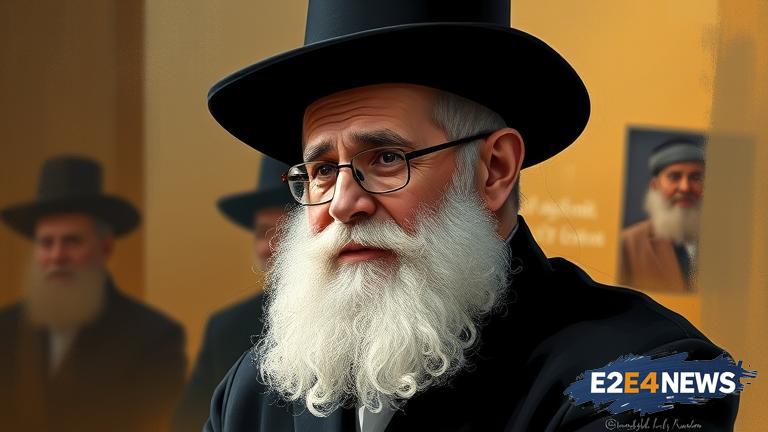A British Islamic Sheikh has sparked widespread outrage and controversy with his recent claims that the late Lubavitcher Rebbe, a prominent Jewish leader, had inspired a plot for a ‘super Jewish state’. The Sheikh, who has been identified as a prominent figure in the British Islamic community, made these claims in a recent lecture, citing the Rebbe’s messianic and apocalyptic beliefs as evidence of his alleged ambitions. The Lubavitcher Rebbe, who passed away in 1994, was a highly respected and influential leader in the Jewish community, known for his tireless efforts to promote Jewish education and outreach. However, the Sheikh’s claims have been met with fierce criticism and condemnation from Jewish leaders and organizations, who have accused him of promoting conspiracy theories and anti-Semitic rhetoric. The Sheikh’s allegations have also been rejected by experts and scholars, who point out that the Lubavitcher Rebbe’s teachings and writings do not support the idea of a ‘super Jewish state’. Despite this, the Sheikh’s claims have sparked a heated debate about the role of religion in politics and the dangers of conspiracy theories and misinformation. The incident has also highlighted the need for greater understanding and dialogue between different religious communities, in order to prevent the spread of hate and intolerance. The Jewish community has long been a target of conspiracy theories and anti-Semitic rhetoric, and the Sheikh’s claims have been seen as a disturbing example of this phenomenon. The incident has also sparked concerns about the rise of anti-Semitism in the UK and the need for greater action to be taken to combat it. The British government has been criticized for not doing enough to address the issue of anti-Semitism, and the Sheikh’s claims have been seen as a wake-up call for greater action to be taken. The incident has also highlighted the importance of education and critical thinking in preventing the spread of conspiracy theories and misinformation. The Lubavitcher Rebbe’s legacy continues to be felt in the Jewish community, and his teachings and writings remain an important part of Jewish tradition and culture. However, the Sheikh’s claims have been seen as a distortion of the Rebbe’s message and a misuse of his teachings for political purposes. The incident has sparked a wider debate about the role of religion in politics and the need for greater understanding and respect between different religious communities. The Jewish community has called for greater action to be taken to combat anti-Semitism and conspiracy theories, and for greater education and awareness about the dangers of hate and intolerance. The incident has also highlighted the need for greater dialogue and cooperation between different religious communities, in order to promote greater understanding and respect. The Sheikh’s claims have been widely condemned, and the incident has sparked a heated debate about the role of religion in politics and the dangers of conspiracy theories and misinformation.
